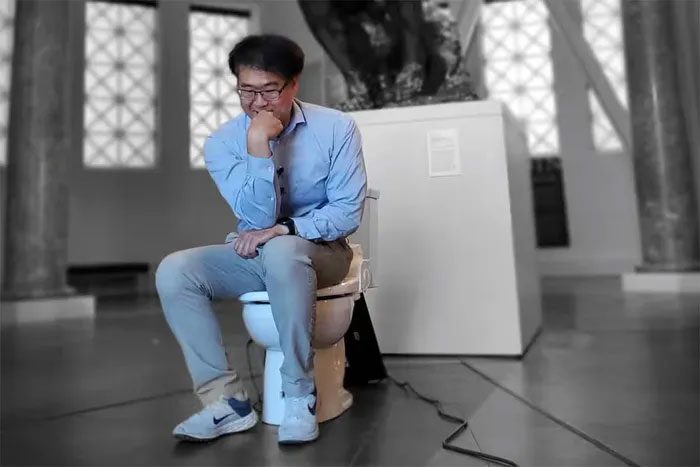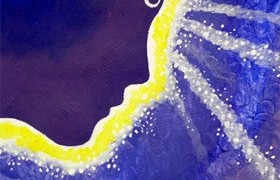This research aims to understand why scientists enjoy licking rocks and the invention of a smart toilet that monitors human waste, which won the 2023 Ig Nobel Prize.
The Ig Nobel Prize is an annual science award that parodies and announces its winners before the prestigious Nobel Prize. The achievements and research that win the Ig Nobel Prize must meet the criteria of “first making people laugh, and then making them think.”

The Ig Nobel Prize is an annual science award announced before the prestigious Nobel Prize.
The Annals of Improbable Research, the organization that founded the Ig Nobel Prize, held an online award ceremony on September 14 (U.S. time). The organizers invited Nobel laureates to announce the Ig Nobel Awards across 10 different categories for scientists around the world.
According to The Guardian, a unique aspect of this year’s ceremony is that the awards are presented in the form of a PDF document that can be printed and assembled into a three-dimensional trophy. Additionally, winning individuals or teams will receive a 10 trillion Zimbabwean dollar note.
In addition to announcing the awards, this year’s event also featured the launch of seven songs themed around water, giving researchers time to explain their work in just seven words within 24 seconds.
The 2023 Ig Nobel Prize in Mechanical Engineering was awarded for the research on resurrecting dead spiders to use as mechanical gripping tools by authors Te Faye Yap and Daniel Preston from Rice University (USA).
“While arranging our laboratory, we discovered a dead spider curled up at the edge of the hallway. The idea came to us when we realized that spiders have muscles that pull their legs inward and rely on hydraulic pressure to extend their legs outward,” Yap shared.
Based on this principle, Yap’s team created a device that can grasp objects of unusual shapes. “Moreover, this device can be handheld and camouflaged in outdoor environments,” the team’s conclusion stated.
Jan Zalasiewicz from the University of Southampton (UK) became the recipient of the Ig Nobel Prize in Chemistry and Geology for his research explaining why many scientists enjoy licking rocks. According to him, while the Italian geologist Giovanni Arduino in the 18th century used taste to distinguish types of rocks and minerals, today’s geologists often use their tongues for different reasons.
“For us, licking rocks is more visually beneficial than gustatory, as a wet surface displays mineral grains better than a dry surface,” Zalasiewicz explained.
The Ig Nobel Prize in Nutrition was awarded to two scientists, Homei Miyashita from Meiji University and Hiromi Nakamura from the University of Tokyo (Japan), for their research on electric chopsticks and straws. These authors believe that using electricity to stimulate the tongue can instantly change the taste of food and beverages, enhancing flavor in ways that ordinary ingredients like spices cannot.

Researcher Seung-min Park with the toilet that won the Ig Nobel Prize 2023, placed in front of Rodin’s thinker statue at Stanford University. (Photo: PR Image/Natuurhistorisch Museum Rotterdam).
The winner of the Ig Nobel Prize in Public Health is the research team that developed a smart toilet utilizing various technologies to monitor signs of illness through human waste and employing anal sensors to identify users. The research team is led by Seung-min Park from Stanford University (USA).
The Ig Nobel Prize in Medicine was awarded to a research team that used cadavers to explore whether each nostril of a person contains an equal number of hairs. Meanwhile, the Ig Nobel Prize in Communication went to scientists who conducted research, including neuroimaging analysis, on individuals with the ability to speak backward.
The organizers awarded the Literature Prize to researchers who explored the peculiar feelings that can arise when repeatedly writing the same word. They referred to this phenomenon as “jamais vu,” when familiar things become strange.
The Ig Nobel Prize in Physics honored researchers who discovered that the mating activity of anchovies at night off the coast of Galicia could create small whirlpools mixing different layers of water in the ocean.


















































